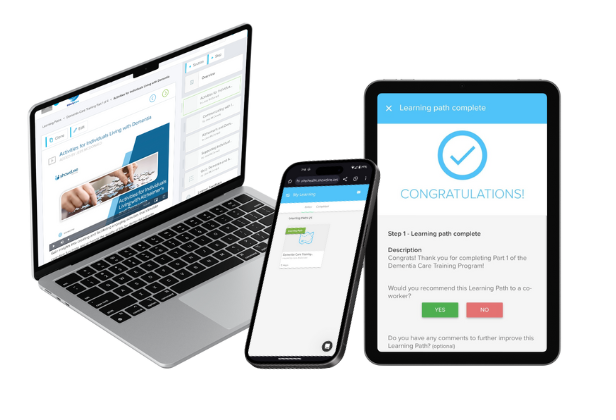Expanding The Talent Pool: Caregiver Recruitment & The Gig Economy
Post - Expanding The Talent Pool: Caregiver Recruitment & The Gig Economy
In today’s evolving gig economy, post-acute care providers are faced with new challenges and opportunities when it comes to recruiting top-quality caregivers. The gig economy, characterized by the prevalence of short-term contracts or freelance work as opposed to permanent jobs, is reshaping the workforce landscape. This shift offers a unique set of benefits and hurdles for both employers and potential employees.
In this blog post, we will explore effective strategies for post-acute care providers to navigate this new frontier, ensuring they attract and retain the best caregivers in a gig economy.
Deciphering the Gig Economy: A New Frontier for Caregiver Recruitment
The gig economy is booming, with a significant portion of the global workforce now engaging in freelance or contract work. According to a 2021 report from Statista, the gig economy in the United States is projected to grow to 86.5 million freelancers by 2027, making up more than 50% of the total U.S. workforce. This seismic shift towards gig work opens up a vast pool of potential caregivers for post-acute care organizations to tap into. Understanding the dynamics of the gig economy, including the desires and needs of gig workers, is the first step in leveraging this workforce effectively.
Gig workers value flexibility, autonomy, and the ability to balance work with personal life demands more than traditional employees. For post-acute care organizations, this means crafting job offerings that appeal to these values. By doing so, agencies and facilities can position themselves as attractive employers in the eyes of potential caregiver candidates.
Competitive Compensation: Key to Attracting Gig Economy Caregivers
While flexibility and autonomy are significant draws of gig work, competitive compensation cannot be overlooked, with nearly 25% of job seekers reporting this as a top influence in their decision to apply for a job. In the gig economy, where traditional benefits such as health insurance and retirement plans are less common, offering a competitive salary, bonuses, and even unconventional benefits can set organizations apart.
For instance, providers might consider offering a higher hourly rate, performance bonuses, or even flexible benefits packages that allow caregivers to choose the benefits that matter most to them. This approach not only makes these positions more attractive but also demonstrates that the organization values and respects its caregivers.
Leveraging Employee Networks for Authentic Recruitment
One of the most effective recruitment strategies is leveraging the networks of your current employees. Encouraging your staff to refer qualified candidates can lead to more authentic and engaged hires. Surveys show that 48% of businesses say their top-quality hires come from employee referrals. This method not only helps in finding potential caregivers who are a good fit for the agency’s culture and values but also fosters a sense of community and trust within the team.
Providers can incentivize their employees to make referrals by offering referral bonuses or recognition programs. Additionally, leveraging social media platforms where employees can share job postings can further expand the reach to potential caregivers in the gig economy.
Embracing Flexibility: Crafting Roles that Resonate with Gig Workers
To attract caregivers in the gig economy, providers must offer roles that resonate with the desire for flexibility. This could mean creating part-time positions, offering flexible scheduling, or even developing project-based roles for specific care needs. By doing so, agencies not only appeal to caregivers looking for gig work but also build a more adaptable and responsive workforce.
Flexibility also extends to the job location. For home care or home health agencies, this could mean offering jobs that are in a certain proximity to a gig worker’s location. For skilled nursing or assisted living organizations, this could mean allowing the opportunity to pick up shifts at a variety of locations in order to maximize availability.
Onboarding & Training: Building Confidence and Competence
A significant challenge in the gig economy is ensuring that all workers, regardless of their employment status, have access to the onboarding and training materials they need. This is especially crucial in healthcare, where the quality of care directly impacts lives.
Online onboarding is an efficient way to get gig workers the paperwork they need to get started at your organization. Online onboarding services such as those offered by showdme send materials directly to new hires via email or text and offer reminders and end-user support to ensure documents are completed as quickly as possible.
Bringing orientation and training online is another way to expedite ramping up time for new gig workers by ensuring they have on-demand access to the information they need to feel confident and competent in their new role.
While the requirements around training vary for 1099 vs. W2 employees, offering educational opportunities to gig workers can make your organization more attractive in the long run. It can also ensure your care standards are recognized across your entire workforce.
Showdme delivers training across your entire workforce that can be completed anytime from any device, all with no apps to download. Plus, our team manages the whole process from start to finish, including program development, credential management and enrollment, multilingual end-user support, and certificate delivery. The goal is to make training easy and engaging to maximize completions.
As you can see, the gig economy represents both a challenge and an opportunity for post-acute care agencies. By understanding the needs and values of gig workers, offering competitive wages and , and leveraging technology, agencies can attract the caregivers needed to thrive in today’s dynamic healthcare environment. As we move forward, embracing the gig economy will not be an option but a necessity for those looking to lead in the post-acute care sector.

Let Us Show You More
See how showdme's unique service-first approach to training helps hundreds of healthcare organizations ensure compliance. Request a demo today!

